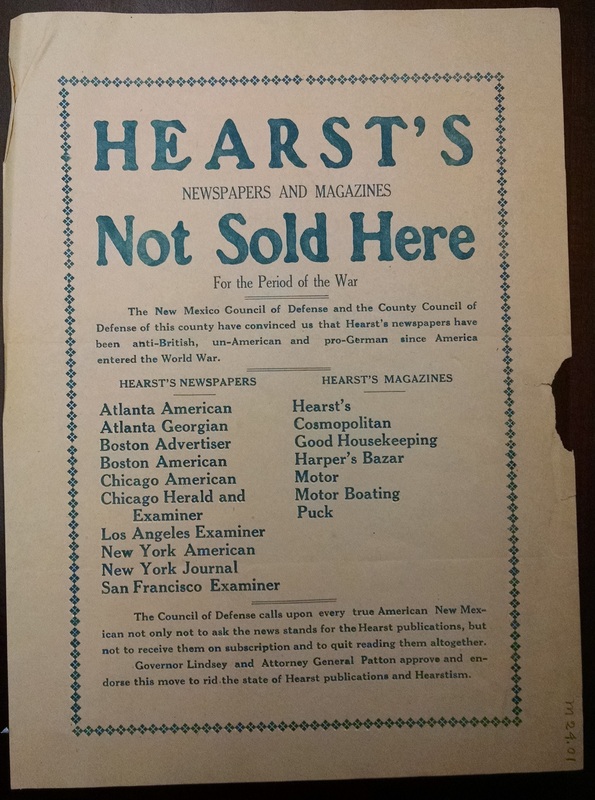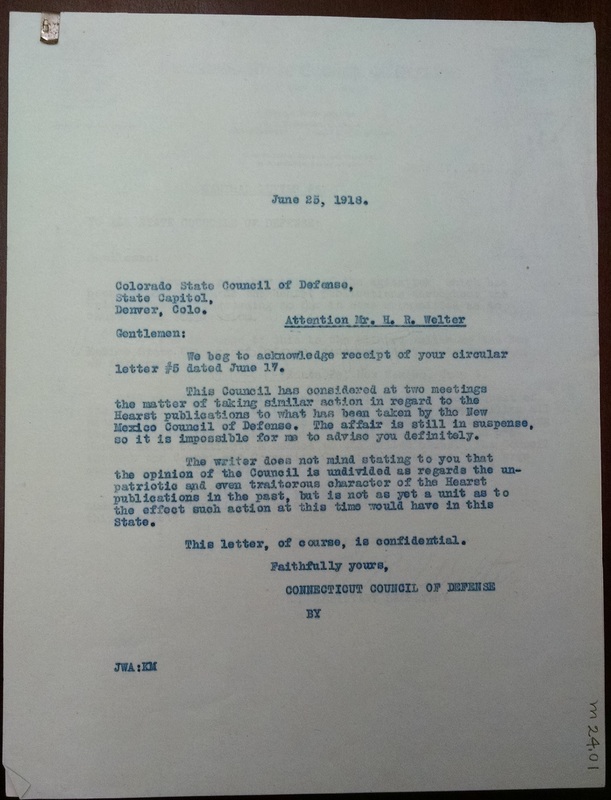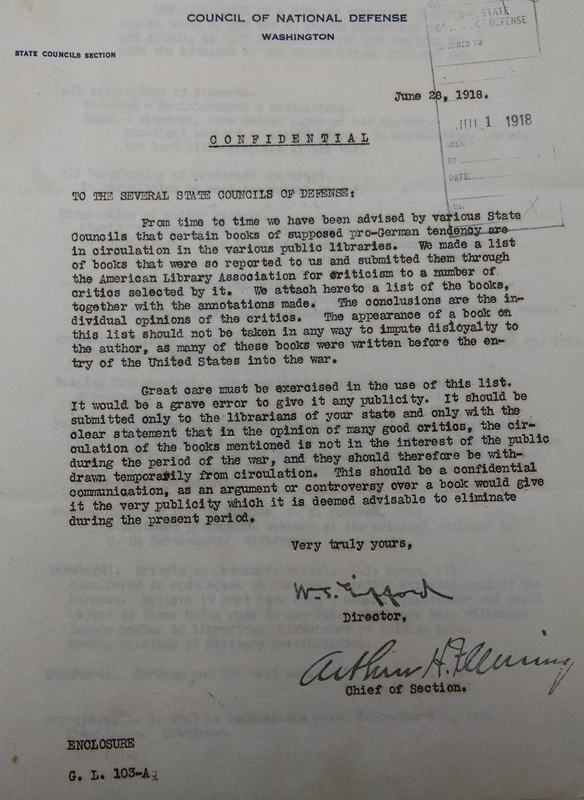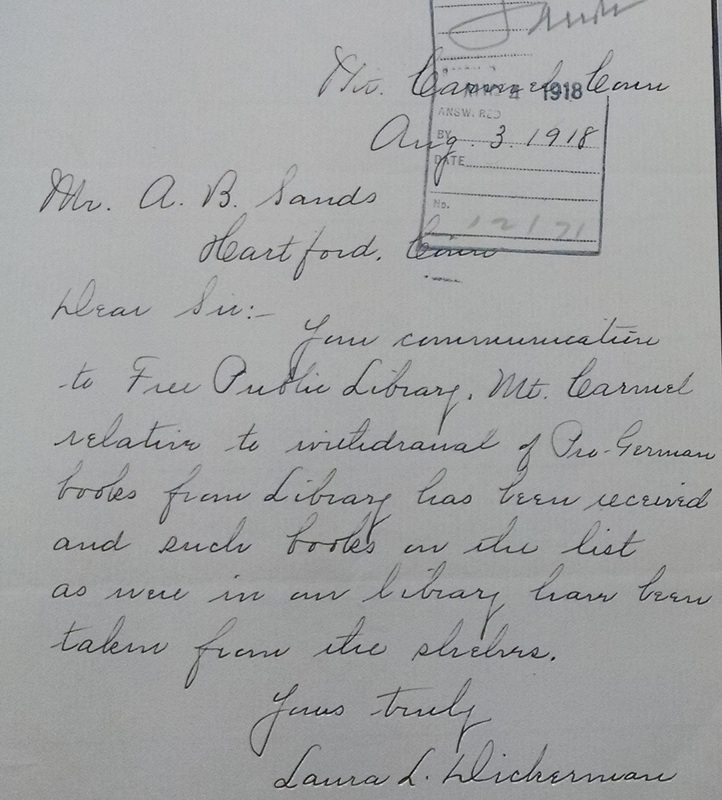The Espionage Act: Censorship and Suppression of Sedition
Willaim Randolph Hearst was an American media tycoon who built the nation's largest newspaper and magazine chain. He was however sympathetic to the German cause during the First World War. With his sympathetic views expressed in his publications, they quickly came under scrutiny from the Espionage Act. Labeled as being detrimental to the war effort by slandering the United States and its Allies, a criticism warned against in the pamphlet “The German Whisper”, they were thus censored and branded as seditious.
While this page was published in New Mexico, this is representative of a countrywide effort to stop Hearst’s Publications. Papers denouncing Hearst were displayed in stores and at newsstands across the country to show support for the war effort and raise awareness among the public to the danger Hearst’s publications posed. They said a patriotic American will not read, nor purchase, said publications.
This letter ties Connecticut’s actions against Hearst to the ones in New Mexico. It shows a nationwide collaborative attempt to stomp out sedition. It is important to note the confidentiality of these letters, which was in order to avoid giving Hearst more publicity before the States can effectively silence the publications.
While Hearst's Publication were deemed seditious and a threat to the war effort, these publications were not the only ones subject to censorship. Rather, entire books were censored also and an effort to silence potential criticism for the war will be taken on at a national level with direct action from Washington D.C.
One such action from the National Council of Defense was to remove pro-German books from library shelves. The books listed are either biographies on influencial German figures or texts praising Germany military prowess. These books reflect a clear and present danger which can influence the disposition of the American public to be against the war, thus harming the war effort. It is important to note that the authors of these texts were exempt from suspicion of disloyalty, as the works they produced were published during peacetime. Disloyalty for suspicion was reserved to those like Hearst who published pro German articles during wartime.
Most librarians gladly removed the dangerous pro-German works from the circulation without protest. Most were fervently in support of the effort of censorship. Just like many other people, librarians saw this action as doing their part to aid in the war effort. Some went as far to suggest to the Council of Defense other books that could potentially be considered dangerous. Accounts like these exist from university and town libraries from across the state. Most librarians stored the books taken from the selves in back offices, inaccessible to the public, until the war ended.



